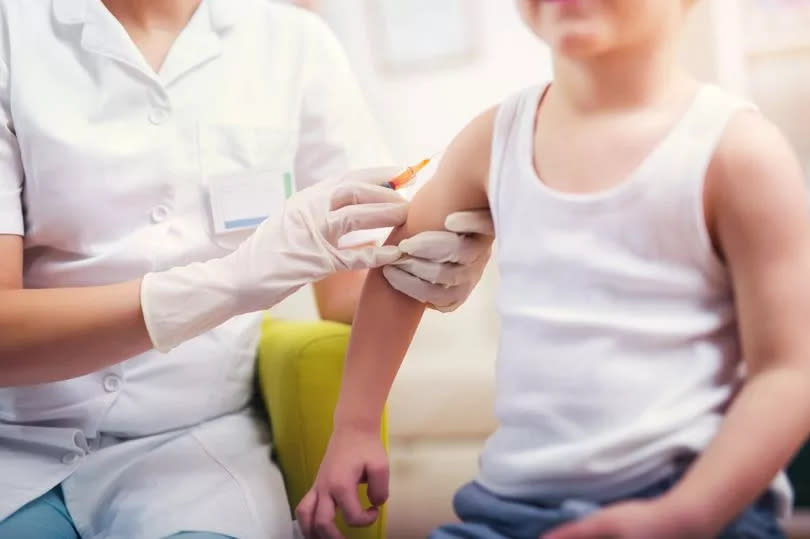Whooping cough warning as another baby dies with pregnant women urged to get vaccinated

Another baby has died in the growing whooping cough outbreak.
The UK Health Security Agency (UKHSA) has reported a surge in whooping cough cases, with May seeing 2,591 confirmed cases, bringing this year's total to 7,599. This marks the most severe outbreak in the UK in four decades, with nine newborns having lost their lives.
Pregnant women are being strongly encouraged to get vaccinated to safeguard their infants until the are old enough to receive their own vaccinations. England's Chief Midwifery Officer, Kate Brintworth, expressed her concern: "The rise in whooping cough cases over the past six months, including several infant deaths, is of real concern and I would urge pregnant women to get vaccinated to help protect their babies in the first few weeks of their life."
Recent figures reveal a consistent monthly climb in whooping cough incidences, starting from 555 in January, increasing to 920 in February, 1,427 in March, and reaching 2,106 in April. The contagious bacterial infection, known medically as pertussis, primarily targets the lungs and airways, reports the Mirror.
Dr Mary Ramsay, Head of Immunisation at UKHSA, emphasised the gravity of the situation: "With cases continuing to rise and sadly nine infant deaths since the outbreak began last November, ensuring women are vaccinated appropriately in pregnancy has never been more important. Our thoughts and condolences are with those families who have so tragically lost their baby."
"Vaccination is the best defence against whooping cough and it is vital that pregnant women and young infants receive their vaccines at the right time. Pregnant women are offered a whooping cough vaccine in every pregnancy, ideally between 20 and 32 weeks. This passes protection to their baby in the womb so that they are protected from birth in the first months of their life when they are most vulnerable and before they can receive their own vaccines."
The latest figures reveal that uptake of the vaccination offered to pregnant women continues to decline, with coverage in March 2024 at 58.9% compared to the peak coverage of 72.6% in March 2017. All babies are given three doses of the 6-in-1 jab at 8, 12, and 16 weeks of age to protect against whooping cough and other serious diseases such as diphtheria and polio, with a pre-school booster offered at three years old.
The new data shows 53% of whooping cough cases were in those aged 15 years or older who usually get a mild illness, but 262 were reported in babies under three months of age who are at greatest risk of fatal complications.
Kate Brintworth added: "The NHS is continuing to identify areas at greater risk and put robust local vaccination offers in place, supporting maternity services and GP practices to do all they can to protect women and babies and make every contact count."
"Women can access the vaccine, which also protects against diphtheria and tetanus, through their GP or some antenatal services, and parents should also ensure that their children get protected in the first few months after birth as part of the routine NHS vaccine offer."
Dubbed the "100-day cough", whooping cough is a highly contagious bacterial infection. Initially, symptoms appear benign, much like a common cold; a runny nose and a sore throat. However, after about a week, severe bouts of coughing begin.
Infants may exhibit an identifiable "whoop" sound or struggle to breathe after intense coughing. But it's critical to note that not all babies make this noise, making the illness sometimes challenging to diagnose.

 Yahoo News
Yahoo News 
